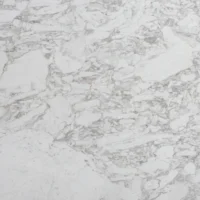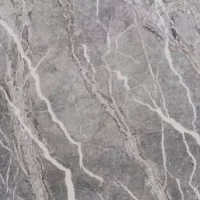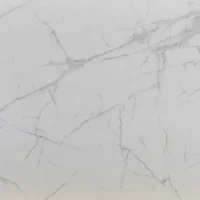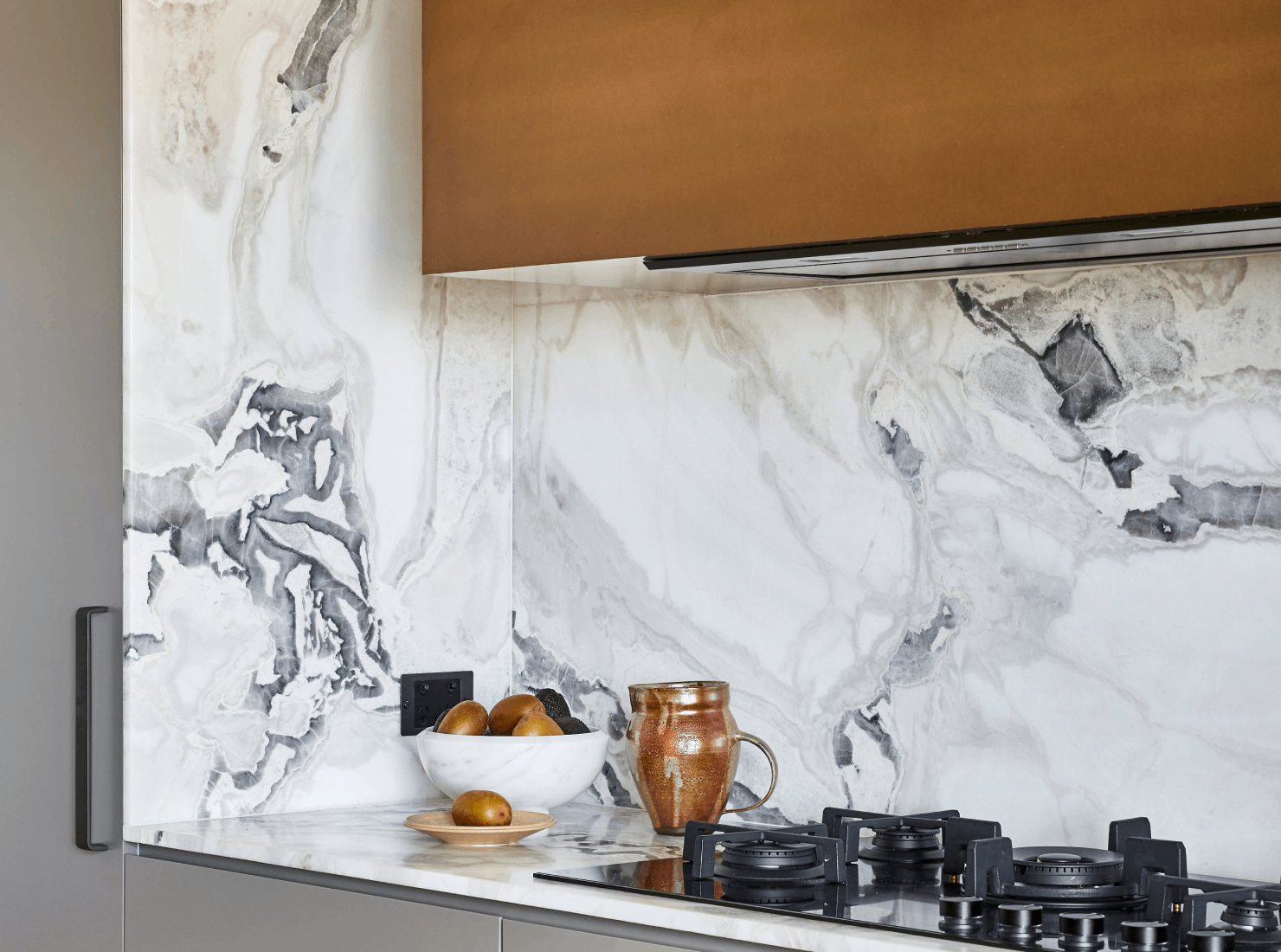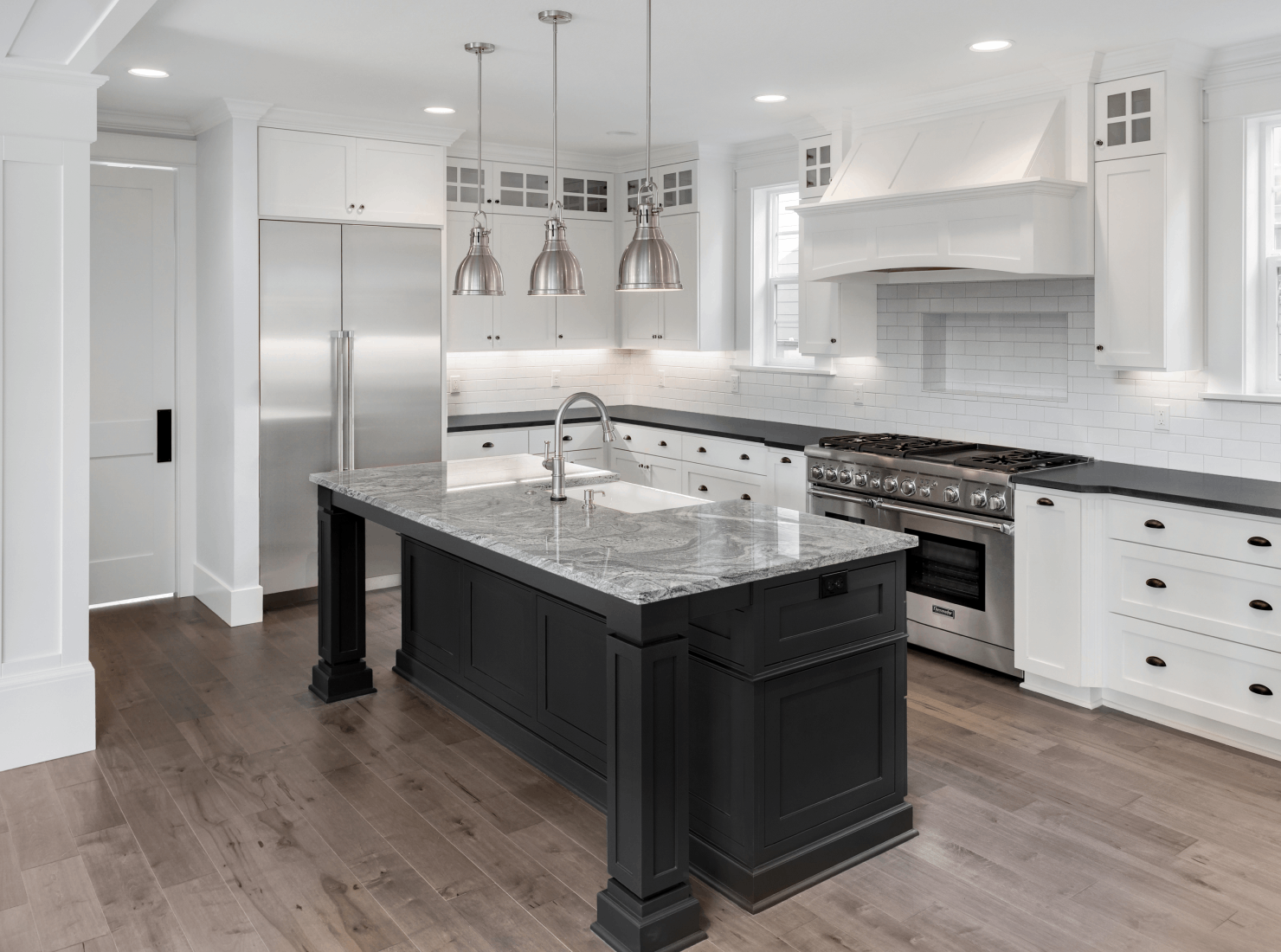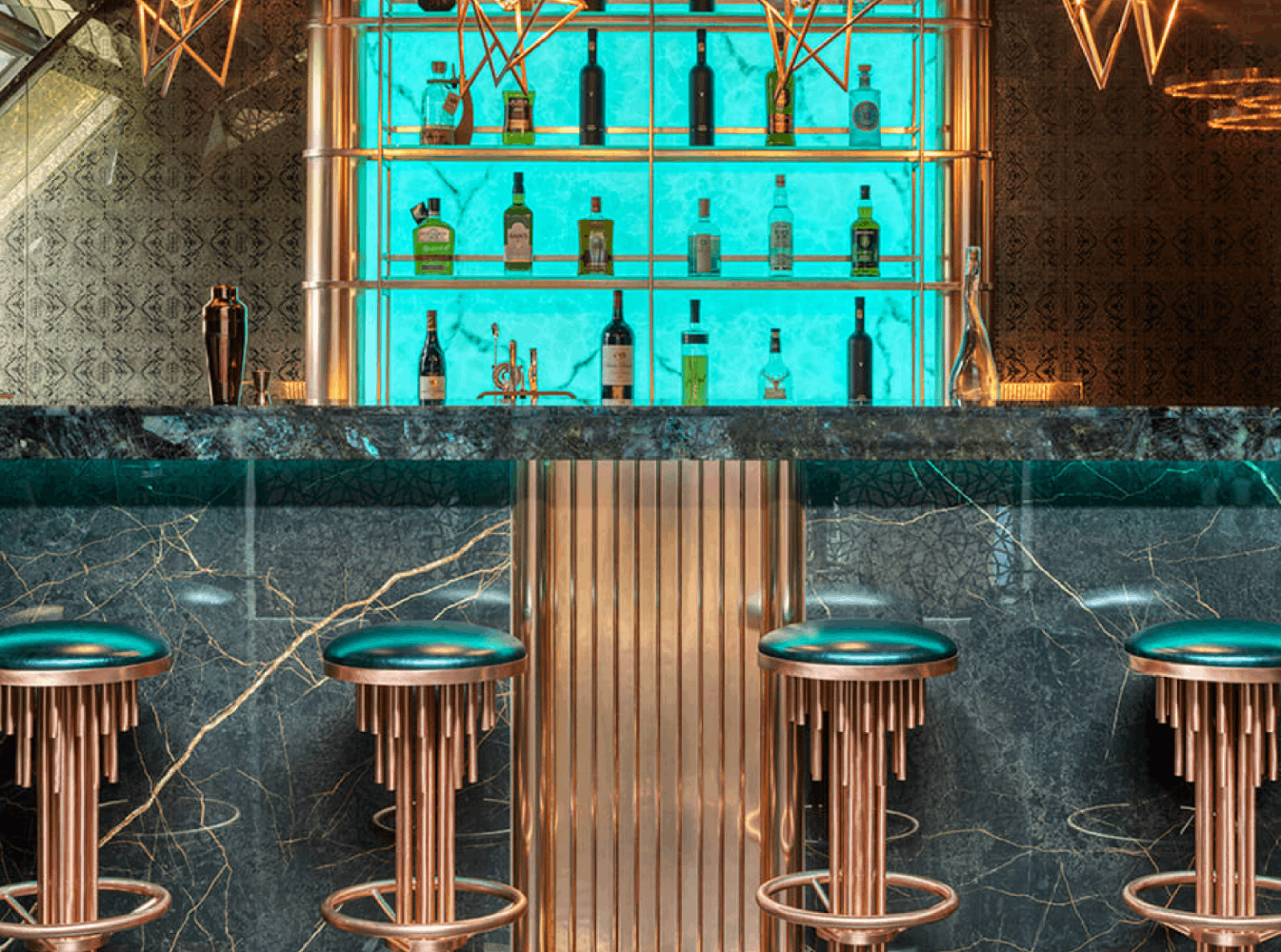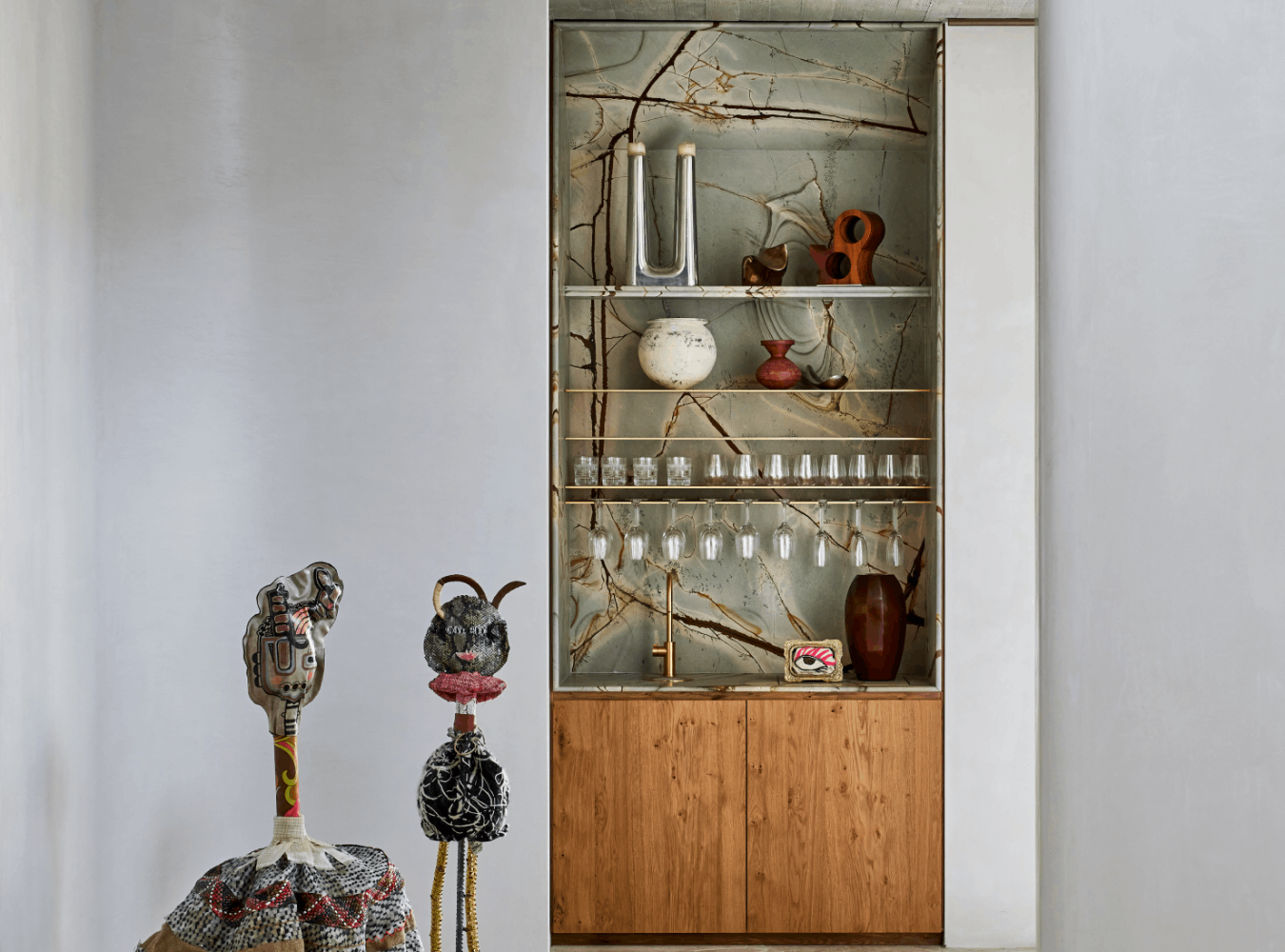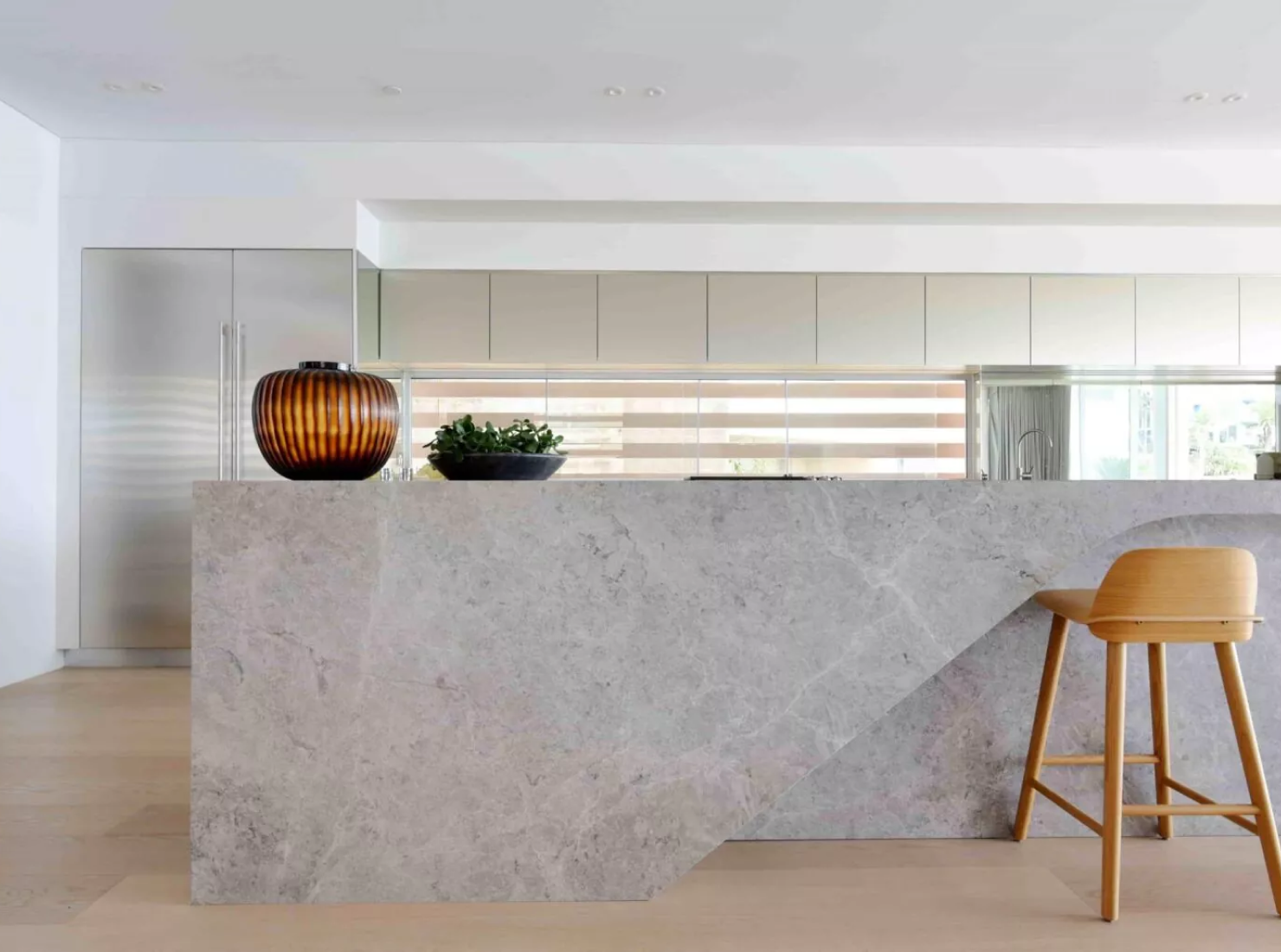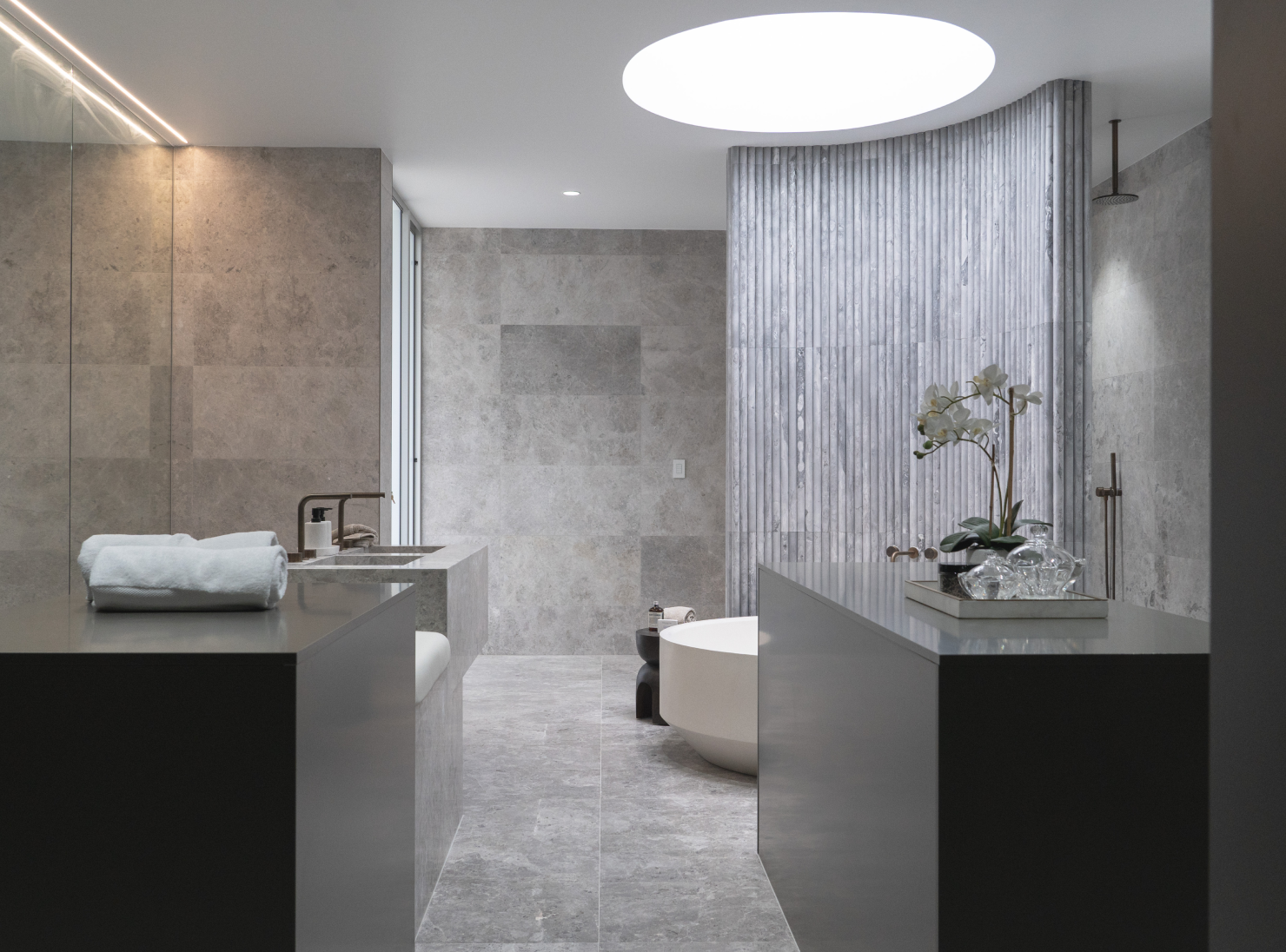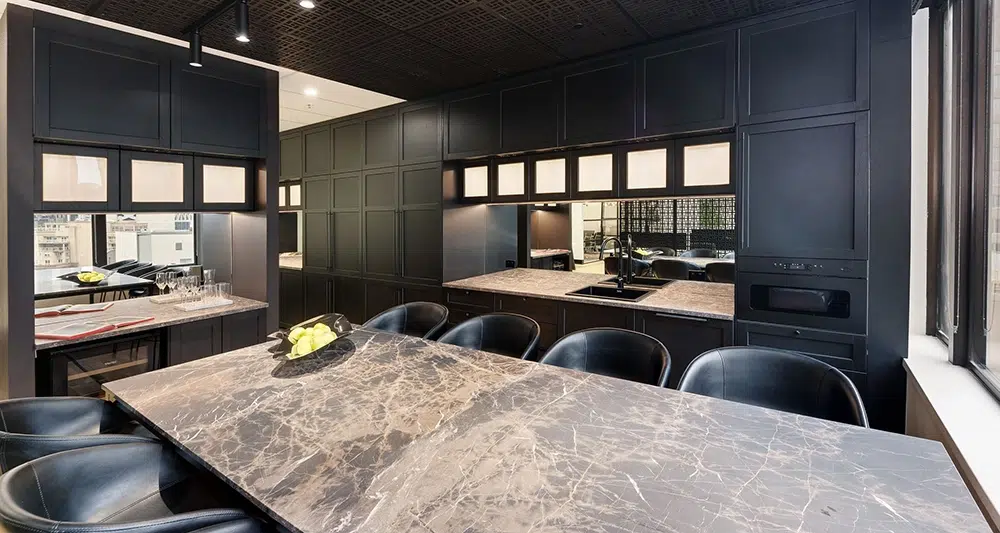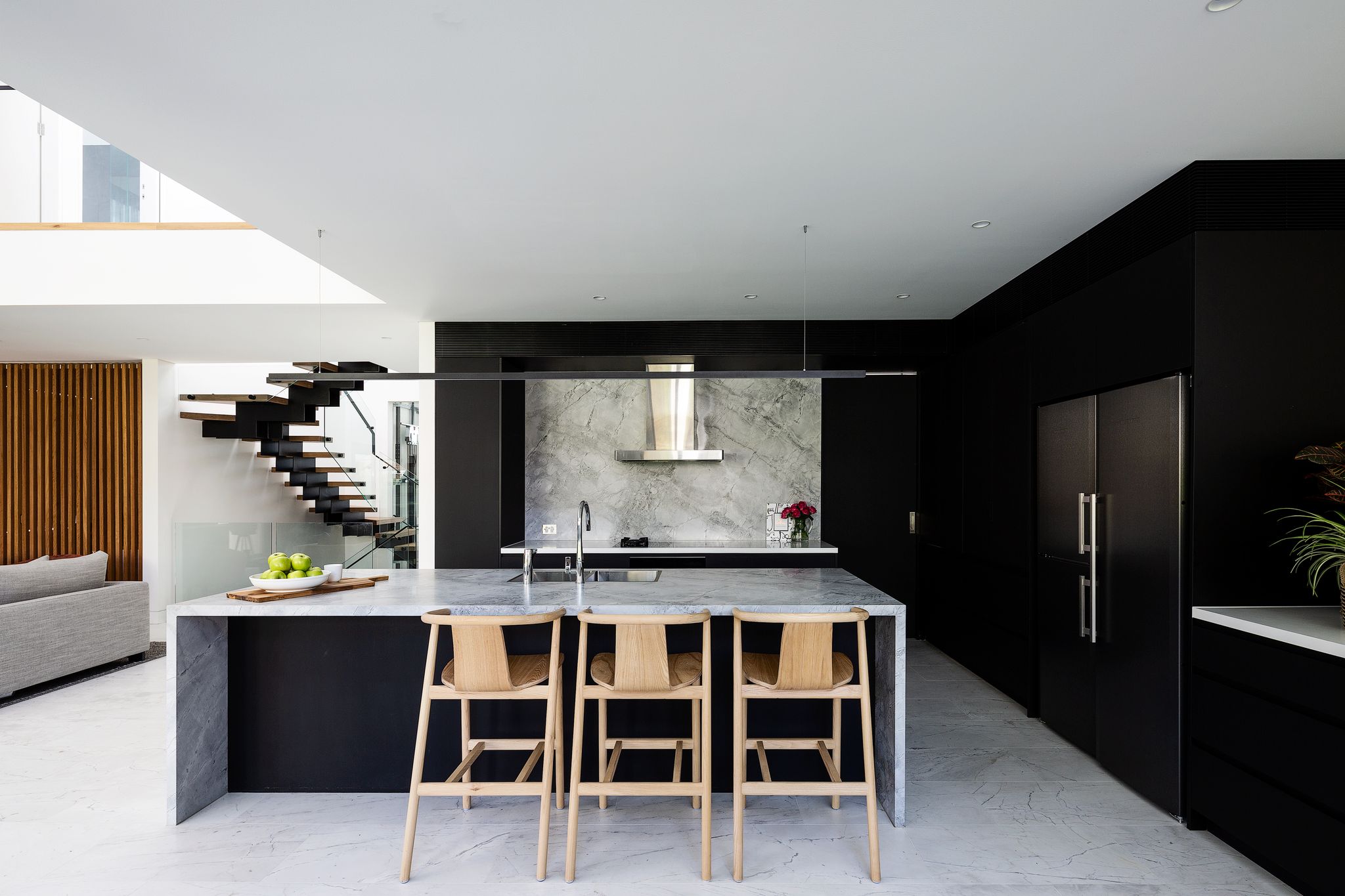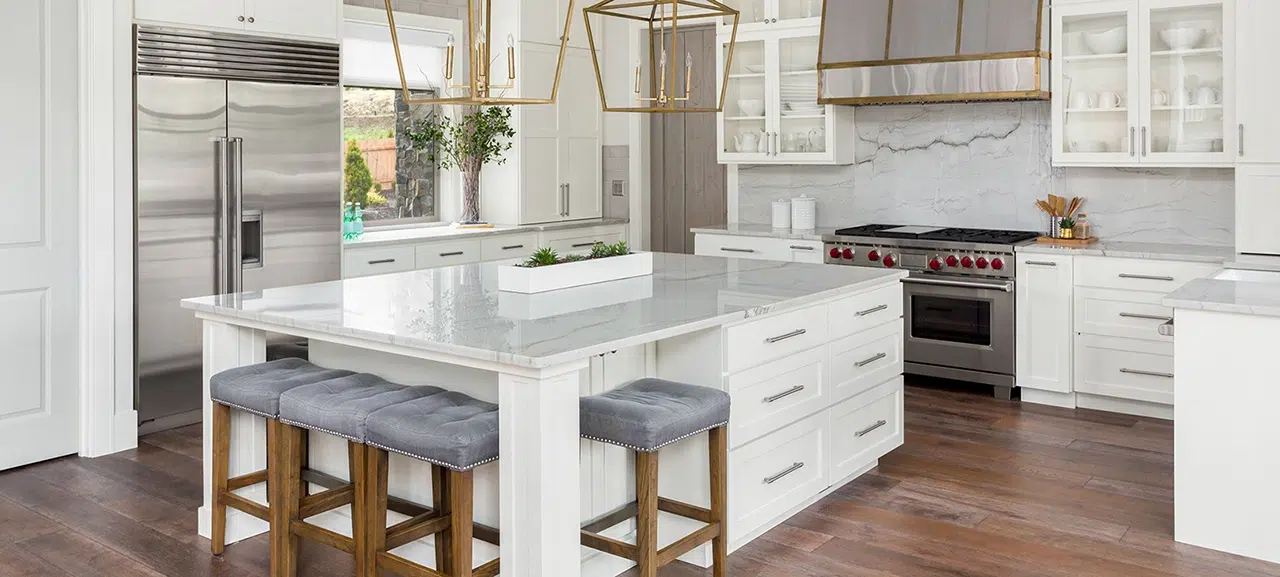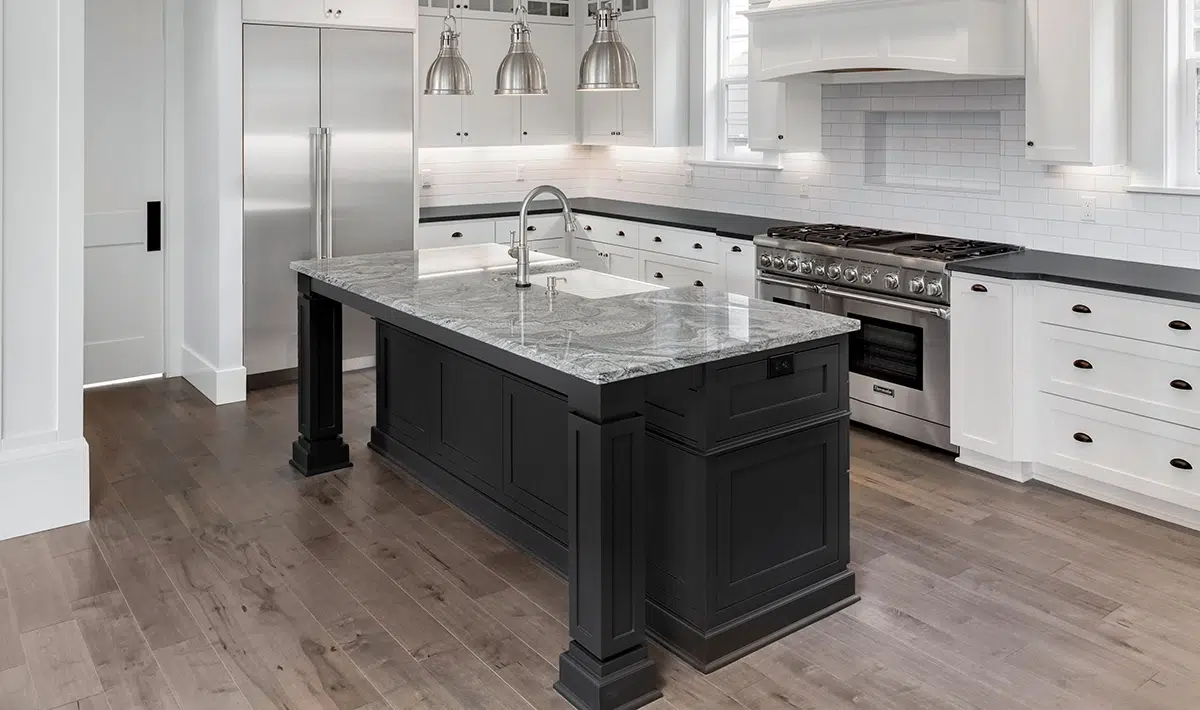Engineered Stone
In recent times, the conversation around engineered stone has intensified within the Australian construction and design sectors. This material, often utilized for kitchen benchtops, bathroom vanities, and flooring, is currently under review due to health and environmental concerns.
What is Engineered Stone?
Engineered stone is a man-made composite created by combining quartz aggregates with resin binders and colorants, forming slabs for a variety of uses. Designed to offer a uniform appearance, it replicates the visual characteristics of natural stones like granite and marble. The production process involves compacting these materials under high pressure and heat, resulting in the desired slab form.
However, the spotlight has shifted towards the health implications for individuals involved in its manufacture and installation. Concerns primarily revolve around the exposure to crystalline silica dust, a byproduct of working with engineered stone. This has prompted significant regulatory scrutiny, leading to a national ban in Australia, aiming to protect workers and promote the use of safer materials such as natural stone. The industry’s move towards prioritizing health and environmental safety marks a pivotal shift in material selection for construction and design projects.
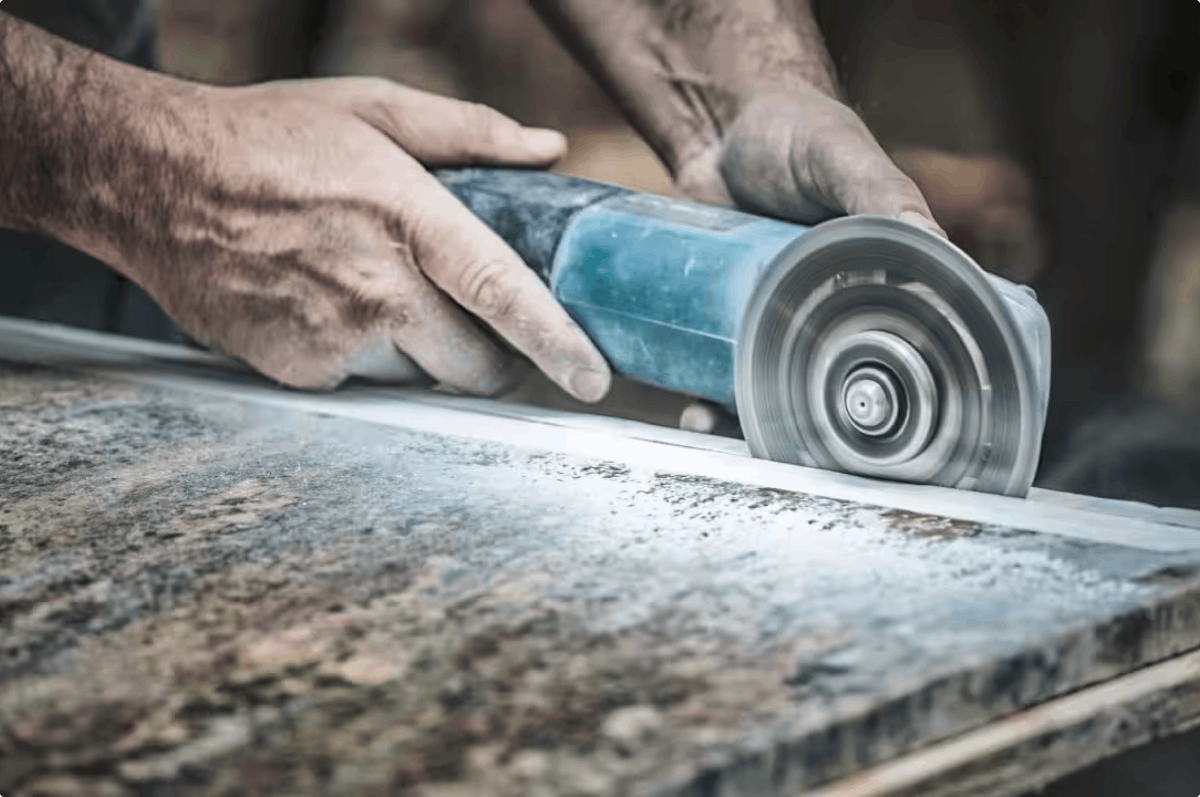
Why is Engineered Stone Being Banned in Australia?
The Australian government has enacted a national ban on engineered stone due to significant health concerns, specifically the risk associated with crystalline silica exposure. Engineered stone, popular in kitchen benchtops and other surfaces, contains high levels of silica. When cut or polished, it releases silica dust, leading to safety hazards for workers, including the severe lung disease silicosis. This decisive action follows mounting evidence and Safe Work Australia’s recommendations, aiming to protect workers’ health and align with global trends toward safer construction materials. As a natural stone supplier, we support this move and emphasize the beauty, durability, and safety of natural stone options like marble, granite, and quartzite, which do not pose the same health risks and offer sustainable, long-lasting beauty for any project
What Dangers Are There Around Engineered Stone?
The dangers surrounding engineered stone stem primarily from its high silica content, which poses significant health risks to workers involved in its manufacture and installation. When engineered stone is cut or polished, silica dust is released into the air. Inhalation of this dust can lead to silicosis, a serious lung disease, and other respiratory ailments. This exposure is not only a concern during the initial installation but also during any subsequent modifications or repairs, where dust can again become airborne. Recognizing these health risks, associated with crystalline silica, Australian authorities have moved towards a national ban on engineered stone to safeguard work health and safety. The ban underscores the critical need for safer materials in construction and emphasizes the importance of adopting natural stone options, which do not carry the same level of health risks.
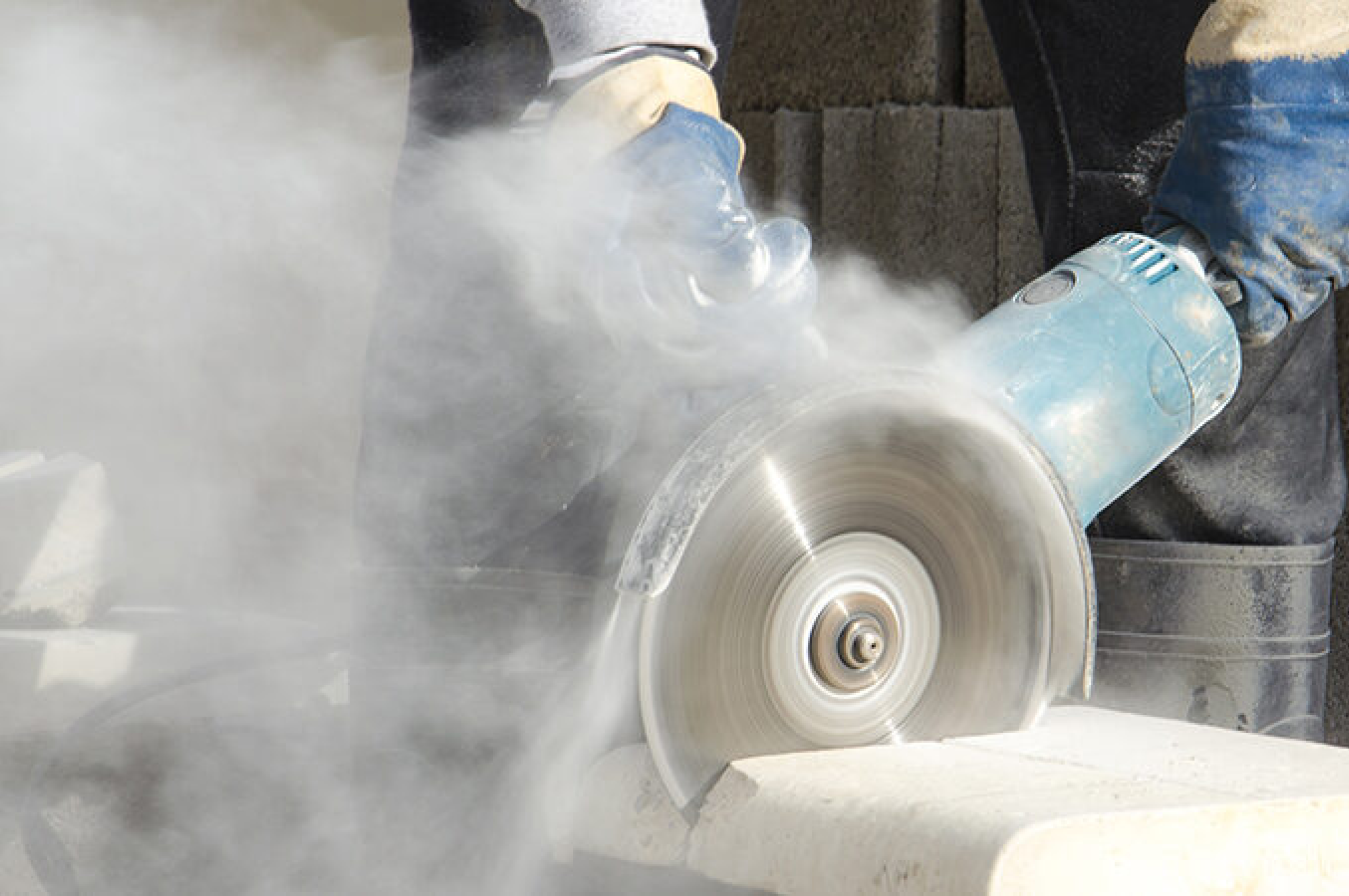
Explore Our Premium Natural Stones Collection: Alternatives to Engineered Stone
Your Dream Space Starts With Our Natural Stone Kitchen Benchtops Collection.
Avant Stone provides many varieties of Marble Benchtops with different veins and structures available in the market. In addition, specific premiere marble can be chosen according to the preference and style of the Kitchen.
Here are highlighted some of the basics of Marble to set out differences among various marble stones and stone countertops.
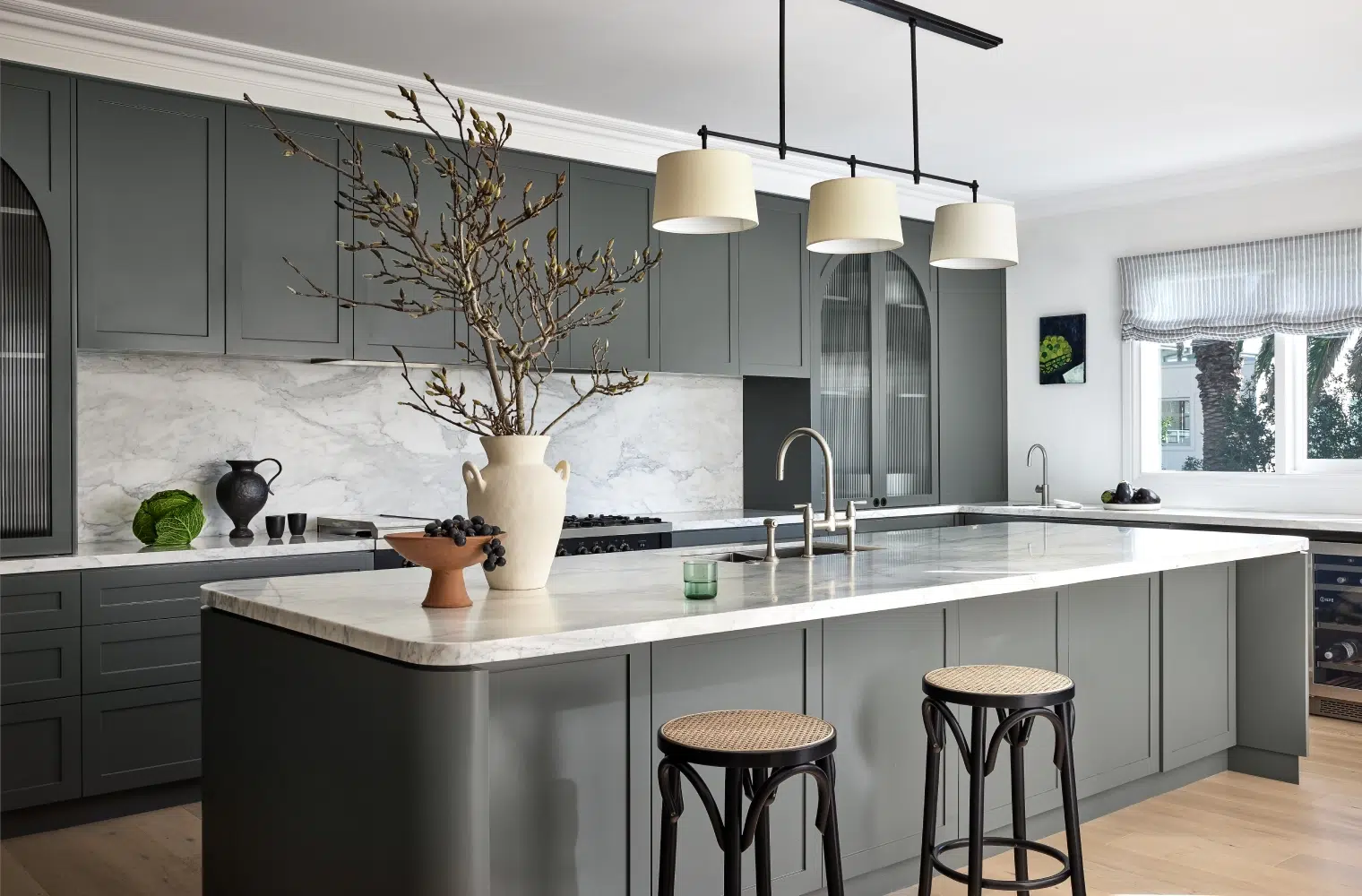
Explore Our Porcelain Slabs Collection: Alternatives to Engineered Stone
What Is The Key Difference Between Natural Stone & Engineered Stone?
The choice between natural stone and engineered stone is significant when considering materials for construction and design projects. Below, we delve deeper into the inherent differences that set these two materials apart, emphasizing the advantages of natural stone for those prioritizing aesthetics, durability, and health.
Natural Stone: Natural stone is quarried in its raw form from the earth, bringing a piece of the natural world into our homes and buildings. Its creation through geological processes over millions of years results in a diverse range of textures, colours, and patterns that engineered stone can only attempt to replicate. Marble, granite, and limestone are prime examples of natural stone’s range, offering everything from dramatic veining to subtle, earthy tones.
Engineered Stone: Engineered stone is a man-made product designed to mimic the beauty of natural stone. By combining quartz particles with resins and pigments, manufacturers can create slabs that are uniform in appearance, offering consistency in colour and pattern. However, this manufactured uniformity lacks the unique character and warmth that natural stone provides.
Natural Stone: The extraction and processing of natural stone have a lesser environmental impact compared to engineered stone. There are no harmful materials used in its extraction or processing, making it a more sustainable choice. Moreover, natural stone does not pose health risks to workers, as it does not produce hazardous dust during cutting or installation.
Engineered Stone: The production of engineered stone involves materials that can be harmful to both the environment and human health. The risk of silica dust exposure is a significant concern, leading to severe health issues such as silicosis. This has prompted actions like the national ban in Australia, highlighting the urgent need for safer materials in the industry.
Natural Stone: Natural stone is renowned for its durability and longevity. Granite, for instance, is incredibly resistant to heat, scratches, and stains, making it ideal for kitchen benchtops. Marble, while requiring a bit more care, brings unmatched elegance to any space. Natural stone’s durability ensures that it can withstand the test of time, often outlasting the buildings it adorns.
Engineered Stone: While engineered stone is durable and resistant to most everyday use, it does not quite match the life expectancy and resilience of natural stone. Engineered stone can sometimes be prone to damage from high heat and may fade or discolour over time, especially when exposed to direct sunlight.
As a natural stone supplier, we recommend natural stone for its unparalleled beauty, durability, and eco-friendly profile. Opting for natural stone is a decision that enhances your project with enduring style, without compromising health or environmental integrity.
Why Natural Stone Is a Superior Alternative
Natural stone stands out for its unmatched durability, beauty, and eco-friendliness, making it an ideal choice over engineered stone. Unlike its engineered counterpart, natural stone does not pose health risks related to silica dust exposure. Each slab of natural stone is unique, offering a range of textures, colours, and patterns that bring a timeless elegance to any space. Its natural durability ensures that it can withstand the demands of daily life, maintaining its beauty for generations. Natural stone is not only a stylish choice but also a practical and safe investment for any project.
Marble
Marble is renowned for its veined patterns and rich range of colours, offering a luxurious touch to interiors. Its beauty evolves, adding character to spaces like bathrooms and kitchens. Though it requires some care to maintain its pristine condition, marble’s timeless appeal makes it a favourite for those seeking elegance and style.
Granite
Granite’s reputation for durability and heat resistance makes it the go-to material for kitchen benchtops. Available in a range of colours and unique granite patterns, it adds a robust and functional beauty to any design. Granite’s resilience against scratches and stains ensures a long-lasting surface that remains stylish and practical.
Porcelain
Though not a natural stone, porcelain offers versatility and durability in a range of applications. It can mimic the look of marble, granite, and other natural stones, providing a low-maintenance alternative that stands up well to heat and wear. Porcelain slabs are ideal for creating cohesive designs with the beauty of stone without the same level of upkeep.
Quarzite
Quartzite is a testament to natural stone’s beauty and durability. Known for its hardness and resistance to heat, it’s an excellent choice for surfaces that require both style and performance. The range of colours and striking patterns available in quartzite makes it a standout option for those looking to combine natural beauty with practicality.
Limestone
Limestone offers a softer, more earthy aesthetic that can bring a sense of warmth and natural beauty to spaces. Its versatility makes it suitable for both indoor and outdoor applications, from bathroom tiles to outdoor pavers. Limestone’s range of natural colours and textures provides a tranquil and inviting atmosphere.
Travertine
Travertine is characterized by its porous texture and warm colours, offering a unique beauty that complements a variety of design styles. Ideal for bathroom and kitchen surfaces, as well as outdoor spaces, travertine brings a timeless beauty that echoes the nature of the landscape. Its durability and ease of maintenance make it a practical choice for a natural stone option.
Is there a large price difference between the engineered and Natural Stone?
While the initial purchase cost of engineered stone might appear more accessible, it’s essential to consider the ban now placed on it in Australia due to health concerns associated with silica dust exposure. This shift elevates natural stone not just as a premium alternative but as a safer, more sustainable option. Although natural stone may come with a higher upfront cost, its durability, longevity, and the unique beauty it adds to any space ensure a better return on investment over time. Unlike engineered stone, natural stone offers a variety of unique patterns and textures that can significantly enhance the value of a property. Moreover, opting for natural stone means investing in a material free from the health and safety concerns that led to the ban on engineered stone, making it a wise choice for both indoor and outdoor applications.
Choose Your Natural Stone Benchtop
Browse our vast range of natural stone options, featuring a sturring variety of colors, patterns, and features to suit every taste and style!
How To Choose The Right Natural Stone For Your Project
Choosing the right natural stone for your project involves several considerations to ensure the material not only meets aesthetic preferences but also functions well in its intended application. Here are key points to guide you:
Consider where the stone will be used. For example, marble and limestone are perfect for interiors like bathrooms and living areas due to their beauty and finish, while granite is ideal for high-traffic areas and kitchen benchtops because of its durability and resistance to heat and scratches.
Different stones have varying levels of hardness and porosity. Granite is one of the hardest and most durable, making it suitable for kitchen surfaces. Marble, while offering stunning veining and colour, may require more maintenance and care to prevent stains and etches.
Each natural stone slab is unique, offering its range of colours and veining. Select a stone that complements the style and colour scheme of your space. Quartzite and granite come in a wide range of colours, providing versatility for design considerations.
By carefully considering these points, you can select the natural stone that best suits your project’s needs, ensuring a beautiful, durable, and functional outcome.
How To Maintenance And Care Of Natural Stones
To keep your natural stone surfaces looking great and lasting long, it’s important to follow these four simple care tips:
To preserve the stone’s natural beauty, clean regularly using a soft cloth and pH-neutral cleaners. Avoid acidic or abrasive products that can damage the surface. Gentle cleaning helps maintain the stone’s integrity and appearance without risking damage to its natural properties.
Natural stone, especially porous types like marble, can absorb spills, leading to potential staining. Quickly blotting away spills, particularly acidic substances, prevents staining and surface etching, keeping your stone pristine.
Apply a sealant periodically to create a protective barrier against stains and damage. The frequency of sealing depends on the stone’s usage and location, with kitchen and bathroom surfaces typically requiring more frequent treatment.
Use coasters, trivets, and mats to protect stone surfaces from scratches, heat, and potential etching. This is especially important for softer stones that are more prone to damage.
Following these easy tips will help make sure your natural stone stays beautiful and strong, making your home look even better.
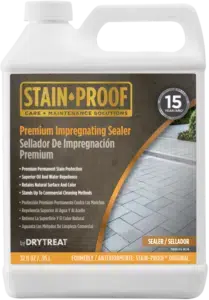
Looking for the ideal stone care products?
Stain-Proof Premium Impregnating Sealer is an impregnating, invisible and breathable sealer that provides premium long term protection for natural stones, tiles, pavers, concrete, brick and grout from water and oil based stains and damage caused by water and dissolved salts. Treated indoor and outdoor surfaces become easier to clean and keep looking good for longer.
Frequently Asked Questions
The ban is all about keeping people safe. The engineered stone releases dangerous silica dust when it’s cut or worked on. This dust can seriously harm people’s lungs, causing diseases like silicosis. It’s a big step towards making sure everyone in our industry and homes stays healthy.
The main worry with engineered stone is silica dust. If you breathe it in, it can lead to really bad lung conditions, including a disease called silicosis, and even lung cancer. Even with safety gear, the risk is still there, and it’s pretty serious.
Different places in Australia might see the ban start at different times. The idea is to phase it in a way that makes sense and gives people time to adjust. We’re keeping an eye on the exact dates and will make sure our customers know what to expect.
The ban mainly targets engineered stone with high levels of crystalline silica. Not all types are banned, especially if they’re made in a way that reduces the risk. But, the safest bet is to go with alternatives that don’t have these health risks at all.
Lots of great options are out there! As a natural stone supplier, we’ve got granite, marble, quartzite, and even porcelain slabs that are not just safe but also stunning. These alternatives give your space a boost without any of the health worries.
Natural stone comes right from the earth, making every piece unique and naturally beautiful. It’s durable and generally needs less upkeep. Engineered stone might offer consistency in looks and colours, but it misses out on the natural charm and safety of stone like granite or marble.
Absolutely. Natural stone doesn’t kick up harmful silica dust, making it a much safer option for homes and projects. It’s the go-to for health-conscious and style-savvy customers.
With the ban rolling out, it’s getting trickier to buy engineered stone. We recommend checking out safer and equally beautiful natural stone options that we offer, which are fully compliant and risk-free.
If you’ve got engineered stone, keeping it in good condition and minimizing dust during cleaning is key. Considering switching to natural stone? We can help with advice and options that match your style and safety needs.


